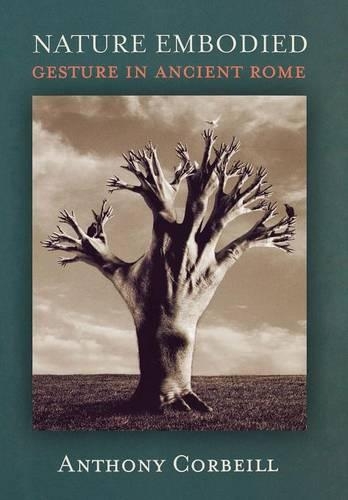
Nature Embodied: Gesture in Ancient Rome
(Hardback)
Publishing Details
Nature Embodied: Gesture in Ancient Rome
By (Author) Anthony Corbeill
Princeton University Press
Princeton University Press
11th February 2004
United States
Classifications
Professional and Scholarly
Non Fiction
European history
Ancient history
Behaviourism, Behavioural theory
Literary studies: ancient, classical and medieval
Paintings and painting
Non-graphic and electronic art forms
937
Physical Properties
Hardback
224
Width 152mm, Height 235mm
454g
Description
Bodily gesture. A Roman worshipper spins in a circle in front of a temple. Faced with death, a Roman woman tears her hair and beats her breasts. Enthusiastic spectators at a gladiatorial event gesticulate with thumbs. Examining the tantalizing glimpses of ancient bodies offered by surviving Roman sculptures, paintings and literary texts, Anthony Corbeill analyses the role of gesture in medical and religious ritual, in the gladiatorial arena, in mourning practice, in aristocratic competition of the late Republic and in the court of the emperor Tiberius. Adopting approaches from anthropology, gender studies and ecological theory, "Nature Embodied" offers both a series of case studies and an overarching narrative of the role and meanings of gesture in ancient Rome. Arguing that bodily movement grew out of the relationship between Romans and their natural, social and spiritual environment, the book explores the ways in which an originally harmonious relationship between nature and the body was manipulated as Rome became socially and politically complex. By the time that Tacitus was writing about the reign of Tiberius, the emergence of a new political order had prompted an increasingly inscrutable equation between truth and the body - and something vital in the once harmonizing relationship between bodies and the world beyond them had been lost. "Nature Embodied" contributes to an expanding field of research by offering a new theoretical model for the study of gesture in classical times.
Reviews
"In this widely accessible study Anthony Corbeill applies anthropological and sociological approaches to aspects of gesture and body language in ancient Rome... Corbeill examines textual and verbal evidence ... to offer innovative and often bold interpretations."--Philip Hardie, Religious Studies Review
Author Bio
Anthony Corbeill is Associate Professor of Classics at the University of Kansas. He is the author of "Controlling Laughter" (Princeton) and the editor of "Memoirs of the American Academy in Rome".
